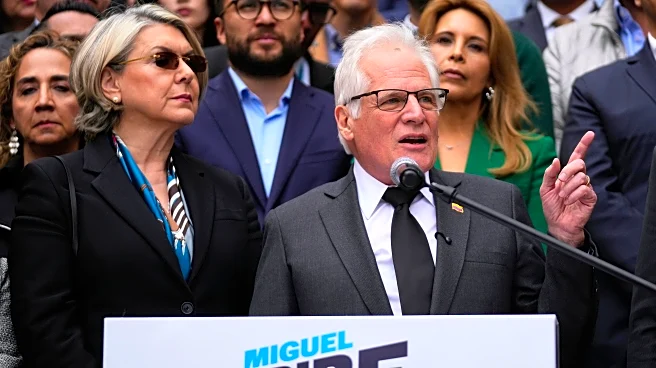Rapid Read • 9 min read
President Donald Trump has signed an executive order aimed at intensifying enforcement on homelessness across the United States. The directive, titled 'Ending Crime and Disorder on America’s Streets,' calls for cities and states to clear homeless encampments and place individuals into mental health or addiction treatment programs. It shifts federal grants away from housing-first initiatives towards programs that mandate sobriety or treatment, and prioritizes funding for jurisdictions that enforce encampment bans. The order also directs several federal departments to review grant programs and prioritize funding for areas that crack down on illicit drug use and urban encampments. This move marks a departure from the previous bipartisan consensus that prioritized housing first, followed by mental health or addiction treatment.
AD
The executive order represents a significant shift in federal policy regarding homelessness, potentially impacting thousands of individuals living on the streets. Critics argue that the order could worsen the homelessness crisis by defunding harm reduction programs, which are crucial for preventing drug overdoses. The directive challenges the effectiveness of housing-first initiatives, which have been supported by public health experts and research from the Centers for Disease Control and Prevention. The order could lead to increased institutionalization of homeless individuals, raising concerns about civil liberties and the humane treatment of vulnerable populations. The policy shift may also affect funding allocations for cities and states, influencing local approaches to homelessness and public safety.
The executive order builds upon a Supreme Court ruling that allows cities to penalize individuals for sleeping outside. As a result, over 100 cities have intensified bans on homeless encampments. The Department of Justice has also filed a lawsuit against New York City over its sanctuary city policies, which could further impact local governance and federal relations. Mayor Eric Adams has expressed support for changing local laws to target criminals, indicating potential policy adjustments in response to federal pressure. The ongoing legal and political developments may lead to further changes in how cities address homelessness and immigration enforcement.
The executive order raises ethical and legal questions about the treatment of homeless individuals and the role of federal government in local governance. The shift away from harm reduction programs could have long-term implications for public health and safety, particularly in urban areas with high rates of drug addiction. The policy may also influence cultural perceptions of homelessness, potentially stigmatizing individuals who are unable to access affordable housing or mental healthcare. The broader societal impact of these changes could affect community resilience and social cohesion, as cities navigate the balance between public order and compassionate care.
AD
More Stories You Might Enjoy












